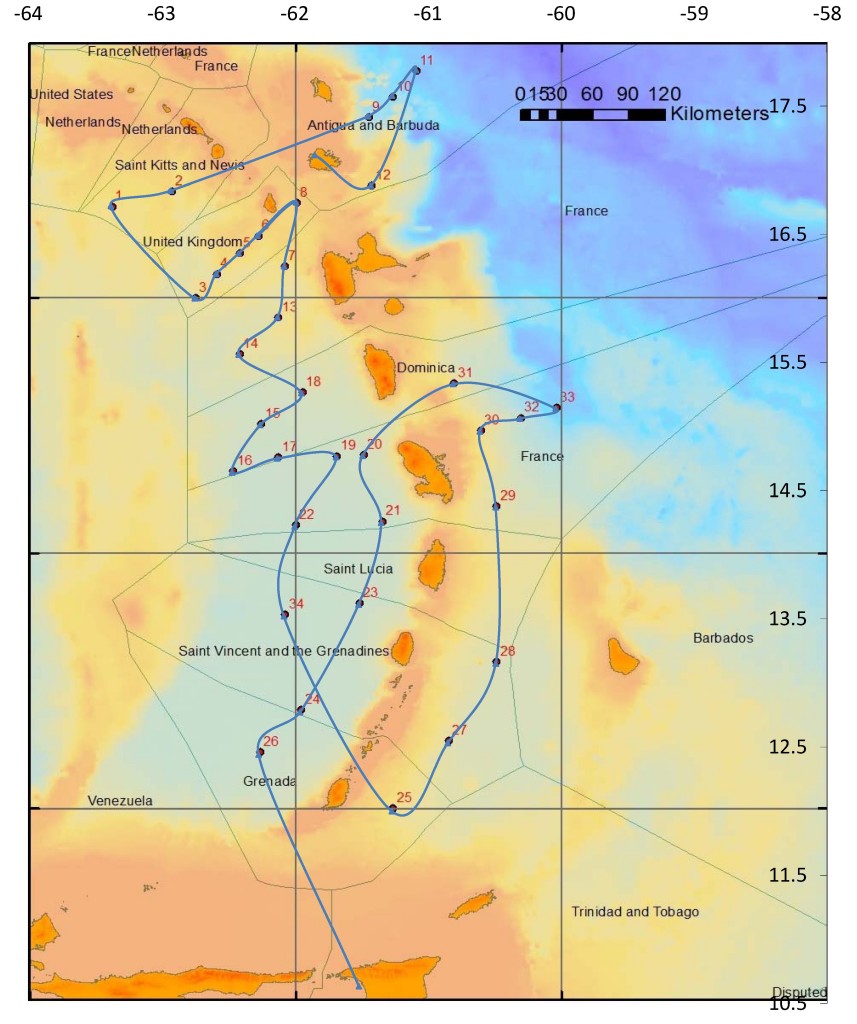First post.
I have been given the opportunity to go on the first research cruise (JS133) of the VoiLA project. The RSS James Cook sets sail from Port of Spain, Trinidad on 6th March, and we will be out at sea until arriving at St. Johns, Antigua on the 17th March.
The main aim of JC133 is to deploy 34 broad-band ocean-bottom seismometers (BBOBS) across the Lesser Antilles to record earthquake waves from local and distant events (passive) in order to image the mantle wedge assess possible pathways of fluids and melt into and through the overlying crust.

The VoiLA passive array is the largest of its type ever deployed at an Atlantic subduction zone. The instruments will remain on the seafloor for 15 months recording natural earthquakes before being recovered in May 2017. We will also be collecting underway gravity, magnetic and swath bathymetry during the cruise.
The JS133 will be my first taste of a research cruise and I cant wait for the experience. Before going on the ship, everyone needs to complete a course in sea survival techniques. The one day course at South Tyneside College’s Marine Safety Training Centre (MSTC) involved a morning of theory, followed by a few hours in an environmental pool. We got into immersion suits and life jackets and in the pool we learnt to launch, turn over and enter a life raft and then use the rafts equipment to move and rescue others. This task wasn’t as easy as it sounds when the waves were turned up, the ‘rain’ was pouring and the lights were off! Finally we were winched out of the water to simulate a helicopter rescue-the day was great fun!
A bit about myself:
I am a postdoctoral researcher from Durham University and my research is focussed on the petrology and geochemistry of volcanic rocks, and the processes which take place in magmatic plumbing systems. I am currently working on another NERC funded project, focussed on the geochemistry of plutonic xenoliths from the Lesser Antilles arc. The cruise will be a great opportunity to learn first hand about geophysical techniques and see the Lesser Antilles from a different perspective.
I will be posting a regular blog during the March cruise and you can also follow updates on Twitter, you can follow the VoiLA project at https:/twitter.com/@VoiLA_NERC